Arizona journalists talk strength, challenges at CALÓ News Diálogo
CALÓ News hosted its first Diálogo Series event in Arizona, bringing together journalists from across Arizona to discuss the importance of strengthening the media landscape.
Journalists, community members and scholars gathered Thursday evening at the Walter Cronkite School of Journalism in downtown Phoenix to discuss the State of Latino-led reporting in Arizona and its communities.
During the event — organized by the Latino Media Collaborative (LMC), Arizona State University (ASU) and CALÓ News Arizona — speakers highlighted progress made in expanding access to news to Latinos in Arizona and other parts of the Southwest, as well as gaps in news coverage that need to be addressed.
According to recent figures from the U.S. Census Bureau, more than 2 million people in Arizona identify as Latino or Hispanic, yet access to Latino-led media continues to be limited.
Matt Morris, research and development specialist at LMC and one of the keynote speakers of the night, presented original research on news coverage in Arizona, highlighting findings that reveal the state’s media shortcomings. He noted that many of the Latino-led outlets are small, local businesses “embedded in their communities.”
“They face a theme of challenges across the board,” Morris said. “Physically, it's news deserts, a lack of information for communities, a lack of targeted state or local or federal resources and there are, unfortunately, several closures in the past decade or so, especially coming out of COVID-19, and that makes things difficult for them,” he said, referring to small news outlets across the state that have had to cease operations. He noted the closures of Azteca America 41, which ceased operations in 2022, La Estrella de Tucson in 2023 and radio stations like Indescreta 106.7 FM, which had its FCC license pulled in 2024.
Morris also pointed out that Latino outlets face underrepresentation in the workforce, a lack of a broadband infrastructure and having to compete with social media algorithms and misinformation.
According to his research, 23 news outlets — print, radio, online and broadcast — are Latino-led in Arizona, with a majority concentrated in Maricopa and Pinal counties.
“The ratio of Latino outlets versus residents, you're looking at about one outlet per 100,000 (Latino) residents compared to the state average, which is about one outlet per 50,000 residents across the state,” Morris said.
However, outlets and organizations have taken steps to address the coverage gaps, he pointed out.
“Looking at local advocates, the Arizona Latino Media Association… the Arizona Hispanic Chamber of Commerce are currently engaged in various types of work to support small businesses and even news organizations in the state,” Morris said. “They're starting that process, doing that process of working. It's important. And then looking at opportunities to grow digital media growth and how the audience seeks trusted messengers.”

CALÓ News, the Latino Media Collaborative and Arizona State University host The State of Latino-Led, Local News in Arizona, the first Diálogo Series event hosted in Arizona.
Local reporters, editors and publishers also took to the stage to share their experiences and encounters on how reporting in Arizona has undergone an evolution from traditional newspaper to WhatsApp group messages, digital reporting and podcasting as well.
Those journalists included Maritza L. Félix, founder of Conecta Arizona; Susan A. Barnett, co-founder of Tucson Spotlight and El Foco de Tucson; Oscar Ramos, reporter with Prensa Arizona; Kirk Whisler, board president of Empowering Latino Futures and Rodrigo Cervantes, recently appointed professor at the Walter Cronkite School of Journalism.
Félix shared her experience in starting Conecta Arizona at the height of the COVID-19 pandemic, as reporters were being laid off from their jobs. Struck by the lack of resources and human connection between readers and reporters, she found herself having to fact-check family members who would send her misinformation on WhatsApp.
“Never in my life I thought about having essential oils, WhatsApp and journalism in the same sentence, and now that's what I do for a living. Connecta Arizona started like a very, very small WhatsApp group of 12 people that was basically my family and my friends and it grew to reach 150,000 people across the border that were craving to have human connections,” Félix said. “Journalism can be very different for everyone, depending on the community that we serve, and we all here serve very different communities.”
She pointed out that hot-button issues like immigration and politics aren't everything that Latino communities want to read about, but rather topics that affect their day-to-day activities.
“Sometimes people just need to talk about grief and talk about health and talk about ‘boring issues’. ‘Where can I get my driver's license?’ ‘How can I renew my Mexican passport before it expires?’ ‘Why is my I-94 jumping from $6 to $30 to cross the border?’”, Félix said. “So journalism has changed. News organizations have changed. And I think the community has changed.”
Cervantes noted that journalism today isn’t just competing with other news outlets, but also with social media and disinformation. As Latino communities continue to grow and diversify, they will increasingly demand that reporters be flexible and mindful of what is considered newsworthy.
“You can see a growth of the Latino community, newer generations of Latinos that don't necessarily speak Spanish, Latinos that probably have mixed visions of life,” Cervantes said. “You also see changes in behavior and in economics, and that's a huge impact that we're having in ethnic media in general. Sadly, more readership doesn't necessarily mean more resources for feeding this appetite for information. It is a pattern that we're seeing in the media in general, and even legacy media is experiencing the same phenomenon. But I would say that the ones that suffer the most are media outlets, either their own or targeting people of color, ethnic media, community media.”
Ramos emphasized that in a world where news can be presented by anyone on social media, outlets such as Prensa Arizona must keep up with the latest trends.
“We have a saying in Spanish: renovarse o morir, renew or die,” Ramos said. “Being a print media right now is an act of resistance and resilience. It’s really difficult to keep afloat with a printed newspaper. That’s why we have to evolve to websites, to social media, to create podcasts, to do whatever it takes to reach out not only in Spanish, but in English as well.”
Prensa Arizona, formerly known as Prensa Hispana, has served Latino communities in the state for nearly 30 years, yet its goal has remained the same since its inception: to give a voice to the voiceless and be a trustworthy outlet that serves the community, he said.
That trust must be earned and maintained. Barnett said that sharing personal experiences with the community is a great way to relate and build relationships. Attending community events without looking to report on them and taking extra steps can help build and fill gaps in media reporting that would otherwise be overlooked.
“There's been a lot of stories coming out of Tucson where ICE visits a local business. I followed up a couple of weeks ago to ask, ‘So what has happened since then?’ And they asked, ’Well, thank you so much for reaching out. Nobody else has reached out to ask us about the aftermath of what's happened.’ People keep that stuff in mind. They remember that you checked up and then you followed up on them,” she said.
Ghadiel Navarrete is a freelance reporter based in Phoenix, Arizona. He graduated in 2024 from ASU with a bachelor’s in Political Science and Journalism.

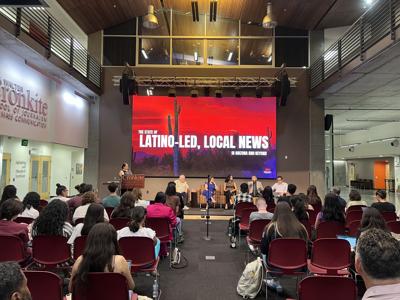

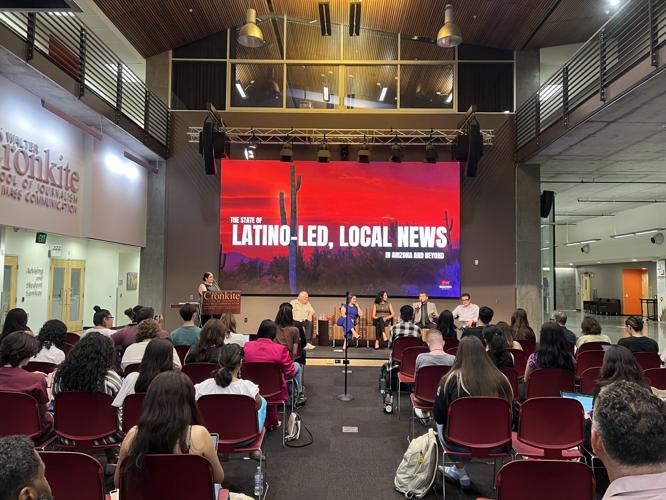
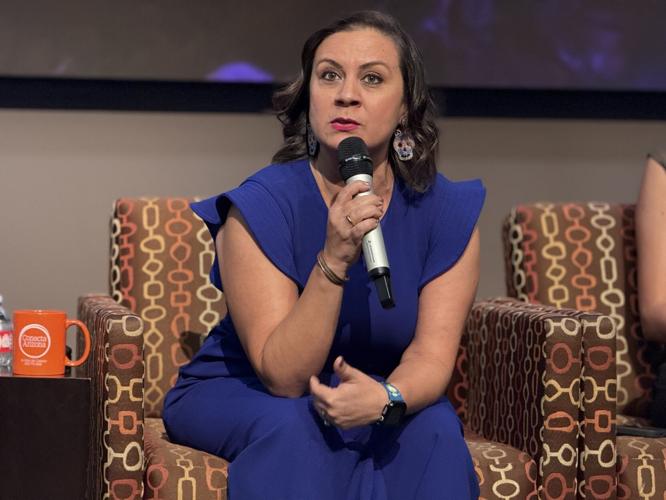

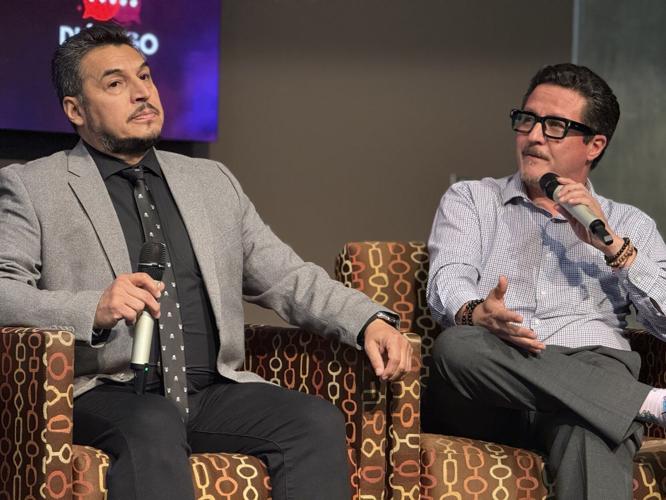

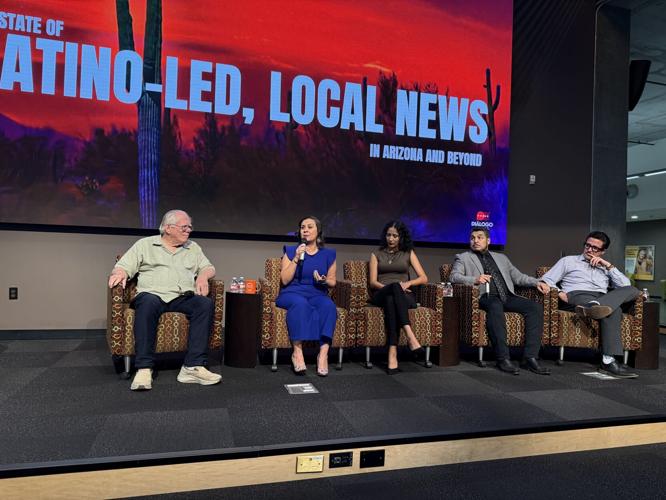

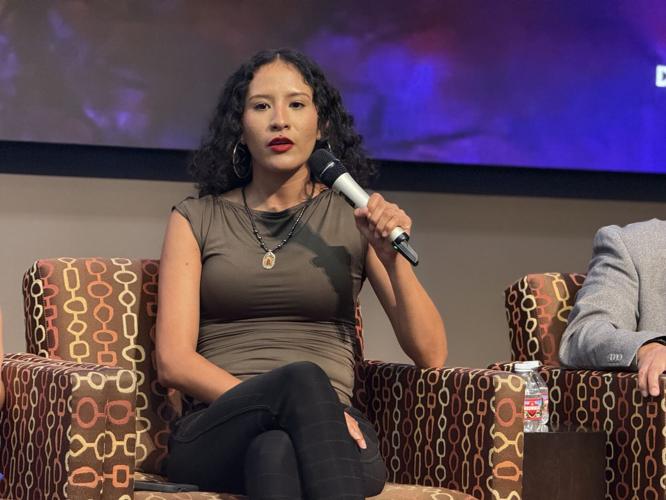

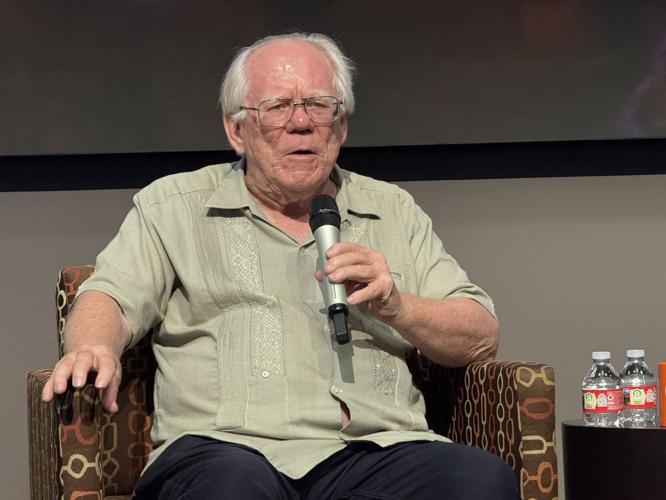

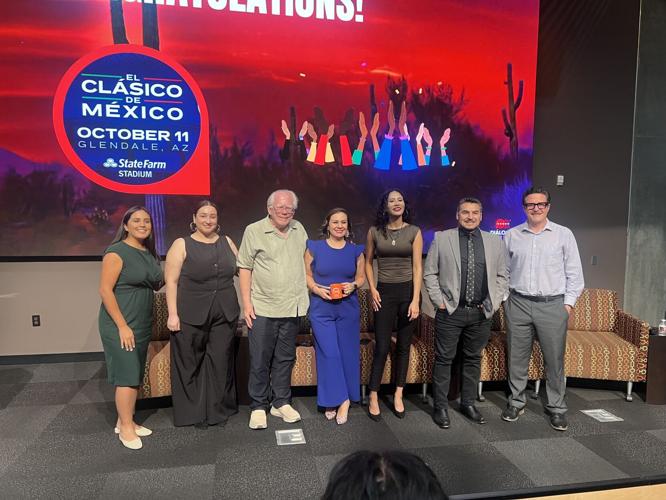






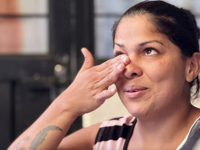




(0) comments
Welcome to the discussion.
Log In
Keep it Clean. Please avoid obscene, vulgar, lewd, racist or sexually-oriented language.
PLEASE TURN OFF YOUR CAPS LOCK.
Don't Threaten. Threats of harming another person will not be tolerated.
Be Truthful. Don't knowingly lie about anyone or anything.
Be Nice. No racism, sexism or any sort of -ism that is degrading to another person.
Be Proactive. Use the 'Report' link on each comment to let us know of abusive posts.
Share with Us. We'd love to hear eyewitness accounts, the history behind an article.